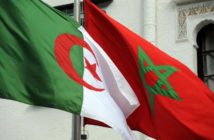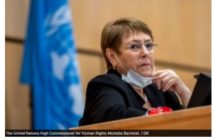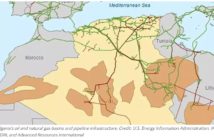The Arab Weekly
Morocco cannot expect a major shift in Algeria’s official position, which has been in place since 1975.
It will be a pointed and interesting exercise to monitor the performance of Algeria’s new president, Abdelmadjid Tebboune, who won an election that stirred controversy over its merit.
While the new president makes promising statements to reassure the popular movement and calm its passions, it remains to be seen whether Tebboune can take the traditional “deep state” head-on and change Algeria’s hostile foreign policy towards Morocco.
Algeria may have valid and objective reasons to be angry at Morocco, reasons that may be related to its internal affairs that make it reluctant to explore solutions with its neighbour.
Morocco may also have reasons that pushed matters with Algeria to a dead end but it is to the credit of Moroccan King Mohammed VI to have made repeated offers to Algeria to return to dialogue that could result in full normalisation in the two countries’ relations.
Tebboune spoke of a new Algeria and King Mohammed VI found the moment opportune in his congratulatory message to reiterate his offer “for starting a new page in the relations between the two neighbouring countries.”
Tebboune had shown openness for dialogue with Morocco on two occasions. As a candidate, Tebboune called on Rabat to apologise to Algeria for accusing it of having been involved in the bombing of the Atlas-Asni Hotel in Marrakech in 1994. After the election, he declared that certain circumstances had led to the closing of the border between Algeria and Morocco and that “the problem will disappear once its causes are removed.”
It wasn’t expected of the new Algerian president to announce a radical reversal in his country’s stance towards Morocco. However, since Algeria has witnessed a real revolution that led to the removal of the Abdelaziz Bouteflika regime, Morocco became hungry for a shift in Algerian politics that would do away with the old, sterile rhetoric that characterised Algeria’s relationship with Morocco.
While the Bouteflika regime advanced several arguments for not opening borders between the two countries, Moroccans considered the core of the dilemma relates to the question of Western Sahara. Rabat considers it Moroccan territory while Algeria supports the Polisario Front.
A remarkable development occurred two months ago from within the Algerian political class. Ammar Saadani, the former secretary-general of the National Liberation Front Party, acknowledged that “the Sahara is Moroccan,” that “Algeria had paid a high price for its support for the Polisario” and that “the closed borders between the two countries must be reopened.”
Saadani is part of the main ruling circle in Algeria and is described as being close to Algerian military Chief-of Staff General Ahmed Gaid Saleh. Even if Saadani made his declarations in Paris, it can be assumed he was not just “making conversation.”
There is persistent talk about Saadani’s imminent return to assume an important position in Algeria, which raises more questions about the nature of his Western Sahara position and about whether his declarations were a message from within the Algerian regime to major world capitals, especially Paris.
The interview with Saadani was published October 17, before the Algerian elections. At the time, he signalled to the outside world more than to Algeria that “the relationship between Algeria and Morocco is greater than this issue (support for the Polisario),” considering that Algeria, Tunisia and Libya are going through significant changes that could revitalise the Maghreb.
Tebboune and Saadani are two figures from the same regime in Algeria and therefore the “problem and causes” mentioned by Tebboune do not hide an internal debate (expressed by Saadani) in the corridors of power in Algeria.
Some within the circle of power may come out and regard Saadani’s views as a personal opinion that does not bind the state but this would not change the fact that this unprecedented acknowledgement of Moroccan identity of Western Sahara broke down a taboo and gives Tebboune new ground to build on.
Algeria absolves itself from any interference in the affairs of Morocco, considering that it has nothing to do with the matter of the dispute between Rabat and the Polisario Front. It has argued that it is just a member, with Mauritania, of the monitoring team in any talks related to the Western Sahara conflict, while UN Security Council resolutions, especially last October’s Resolution 2494, consider Algeria as involved in the conflict and its solution. So the way to overcome the dispute between Algeria and Morocco requires giving up the old rhetoric.
Morocco cannot expect a major shift in Algeria’s official position, which has been in place since 1975. It would be unfair for Rabat to rush the new Algerian president for a radically new philosophy of his country’s foreign policy before testing the man’s capacity to wage an internal battle that meets the aspirations of the street.
The “New Algeria” for which Tebboune is advocating requires that he performs in a way that persuades people at home as well as the world’s capitals, especially Morocco, that the country is shifting to accommodate the effects of the popular earthquake that hit the whole political class.
In his December 19 speech, Tebboune said: “The question of the Moroccan Sahara is a matter of decolonisation and it is an issue in the hands of the United Nations and the African Union and it should remain far from disturbing relations with our brothers in the Maghreb.”
This is an ambiguous position that might be described as both firm and flexible. The big question, however, is this: Isn’t changing Algeria’s relationship with Morocco the strongest message of change for people at home before those outside?

Written ByMohamad Kawas
Mohamad Kawas is a Lebanese writer.







